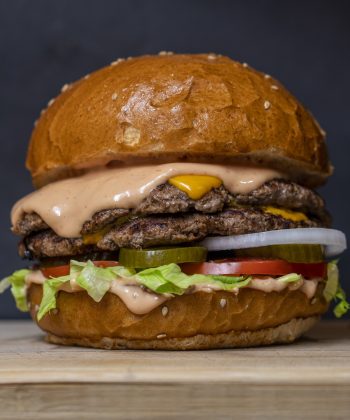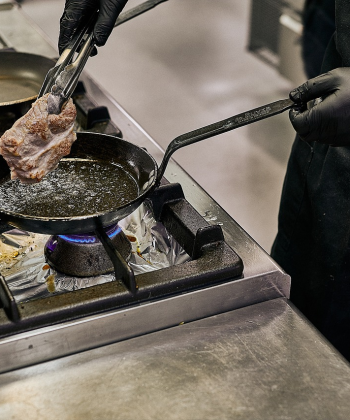Wine tasting is a delightful exploration of flavors and aromas that invites you to engage your senses. Whether you’re a novice or an enthusiast, your first wine tasting adventure offers a unique opportunity to discover the nuances of different wines and deepen your appreciation for this age-old craft. Preparing for this experience with a bit of knowledge can make it even more enjoyable.
Approaching wine tasting with an open mind and a willingness to learn can transform your experience from merely sipping a beverage to embarking on a sensory exploration. This article will guide you through the essential tips for making the most of your first wine tasting, ensuring that you sip, swirl, and savor each moment.
Understanding the Basics of Wine Tasting
Wine tasting involves more than just drinking wine. Think of it as more of a way to engage your senses to appreciate the complexities of each glass. By understanding the basic steps of wine tasting, you can enhance your experience and fully enjoy the subtleties of different wines.
- See: Start by observing the wine’s color and clarity. Hold the glass up to the light and take note of the hue and transparency. The color can give you clues about the wine’s age and grape variety.
- Swirl: Swirling the wine in your glass helps to aerate it, releasing its aromas. This simple action can significantly enhance your ability to detect the wine’s bouquet. Swirling also prepares your palate for the tasting by mixing the wine’s components.
- Sniff: After swirling, bring the glass to your nose and inhale deeply. The aroma of the wine can reveal a lot about its character and quality. Try to identify different scents, such as fruits, spices, or earthy notes, which can vary widely among wines.
- Sip: Take a small sip and let the wine linger in your mouth. Pay attention to the flavors and textures that unfold on your palate. Notice the balance of sweetness, acidity, and tannins, which contribute to the wine’s overall profile.
- Savor: Finally, focus on the aftertaste, also known as the finish. A good wine will leave a pleasant and lasting impression. Reflect on the overall experience and how the flavors evolve after swallowing.
Preparing for Your Wine Tasting Experience
Proper preparation can enhance your wine tasting experience, allowing you to focus on the flavors and aromas without distractions.
Start by researching wineries or tasting rooms in your area to find those that align with your interests. Articles like this, which describe wineries in the Augusta region, can help you narrow down good ones near you.
When creating your winery list, consider the types of wines they offer and any events or tours available. Planning ahead ensures a more relaxed and enjoyable visit.
When you’re ready to go, make sure to dress appropriately for the occasion. Wine tasting often takes place in elegant settings, so dress comfortably yet suitably. Avoid wearing strong perfumes or colognes, as these can interfere with your ability to smell the wine. Choose attire that allows you to move freely and enjoy the experience.
Do’s and Don’ts of Wine Tasting
Approaching wine tasting with the right mindset can make the experience more enjoyable and rewarding. Here are some guidelines to help you make the most of your first tasting.
- Do: Embrace the experience with curiosity and openness. Approach each wine with a willingness to learn and discover new flavors. Engage with the staff and other tasters to enhance your understanding and enjoyment.
- Don’t: Be afraid to ask questions and engage with the staff at the wine tasting room. They are there to guide you and share their knowledge about the wines. Asking questions can deepen your appreciation and help you make informed choices.
- Do: Take small sips and savor the flavors. Allow the wine to coat your palate and reveal its complexities. Taking your time with each sip helps you fully appreciate the wine’s character.
- Don’t: Chug or gulp the wine; focus on the tasting experience. Wine tasting is about savoring the moment and understanding the wine’s nuances. Rushing through the tasting can cause you to miss out on the subtleties.
- Don’t: Don’t drink and drive! Make sure to have a designated driver. Many wine tasting places even offer free non-alcoholic options for the designated driver in your group.
Enhancing Your Wine Tasting Skills
Developing your wine tasting skills can enrich your experience and deepen your appreciation for wine. Here are some ways to hone your abilities.
- Practicing blind tasting to sharpen your senses: Blind tasting involves sampling wines without knowing their identity. This practice encourages you to rely on your senses to identify flavors and aromas. Over time, blind tasting can improve your ability to discern different wine characteristics.
- Keeping a wine tasting journal for notes and preferences: Recording your impressions of each wine can help you track your preferences and learn more about your tastes. Note the wine’s name, vintage, and any flavors or aromas you detect. A journal can also serve as a valuable reference for future tastings.
- Understanding food pairings to enhance the wine experience: Pairing wine with food can elevate both the wine and the meal. Learn about classic pairings and experiment with different combinations to find what works for you. Understanding how flavors interact can add a new dimension to your wine tasting.
Common Wine Tasting Myths and Misconceptions
Wine tasting is often surrounded by myths and misconceptions that can intimidate newcomers. By addressing these myths, you can approach wine tasting with confidence and enjoyment.
For example, some believe that wine tasting requires special skills or knowledge. In reality, anyone can enjoy wine tasting by focusing on their senses and personal preferences. Trust your palate and don’t worry about getting it “right.”
It’s important to Encourage personal preferences over popular opinions: Wine tasting is a subjective experience, and personal preferences play a significant role. Don’t feel pressured to like a wine just because it’s popular or highly rated. Your enjoyment is what matters most.
The Bottom Line
Wine tasting offers a rich and rewarding experience that invites you to explore the world of flavors and aromas. By approaching your first wine tasting with an open mind and a willingness to learn, you can discover the joys of this sensory adventure.
As you sip, swirl, and savor, you’ll find that wine tasting is not just about the wine itself, but also about the connections you make and the memories you create. Whether you’re visiting a local winery or hosting a tasting at home, embrace each moment and let your senses guide you.



